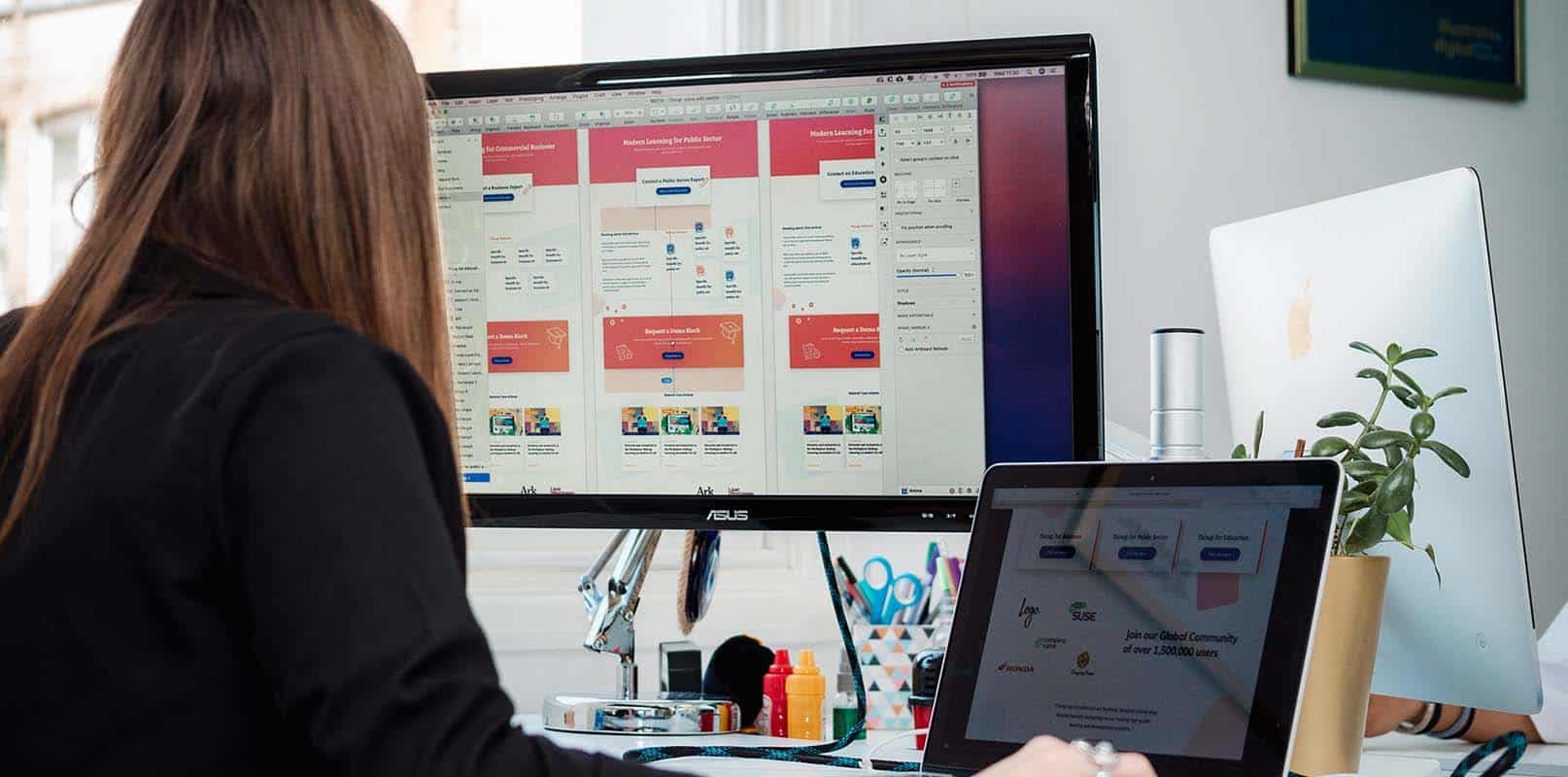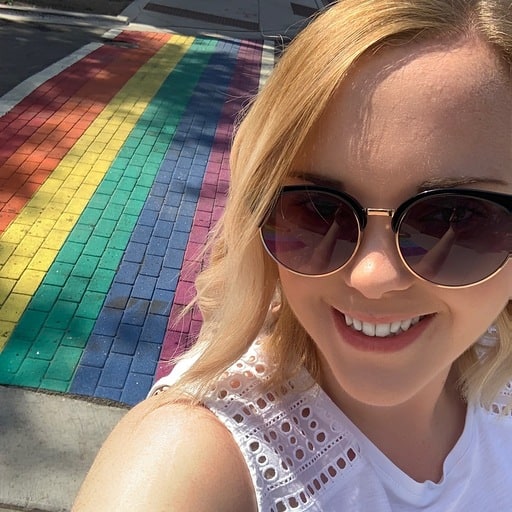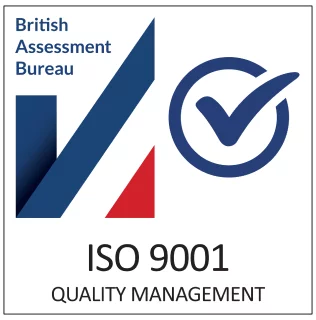A UX (user experience) design agency is a company that specialises in creating positive user experiences for digital products and services.
If you’re looking to create a website, mobile app, or other digital product, it’s important to work with a UX design agency to ensure that the final product is intuitive and easy to use.
In this blog post, we’ll explain what a UX design agency does and how they can help you create a successful product. Stay tuned!
A quick intro
When asking ‘what is a UX design agency?’ you’re essentially asking three different questions… ‘What is UX?’, ‘what is UX design?’ and ‘what do they look like’ when carried out and deployed by a collective of specialists?
Those are the questions we’re going to answer here after some light background, for context.
If you know your ‘Don Normans’ from your ‘Henry Dreyfuss’, feel free to skip to ‘what does UX design actually do?’ If you don’t, it’s worth the brief detour.
Contents
What Is UX Design? (Some light background)
What Is a UX Design Agency?
What Services Should You Expect from a UX Design Agency?
UX Agency vs Freelance vs In-House
How Does the Right UX Design Agency Bring Commercial Value?
What to Share with a UX Agency to Get a Valuable Proposal
What Is UX Design? (Some light background)
Today it’s almost assumed that ‘users’ of ‘user-experience’ only exist online. That’s because UX design has boomed in popularity and potential with the arrival of online spaces and technologies.
UX design before & after the internet age
The definition of a ‘user’ for pre-internet UX designers like American industrial designer Henry Dreyfuss could easily be someone having the experience of sitting in a car.
The UX designer in that context is the person whose job it was (is) to make that experience as smooth, meaningful and safe as possible.
More recently, the work of people like Don Norman (who wrote The Design of Everyday Things) helped lay out the principles of UX design still widely used in modern web and software development.
Widely recognised as having coined the ‘UX design’ term, Don Norman joined Apple as their User Experience Architect in 1993, becoming the first person in history to have ‘UX’ in their job title.
What does UX design actually do?
When you have the experience of sitting in a car, or browsing for a new car insurance policy, what do you want the experience to do?
That’s the primary question UX design concerns itself with.
UX design should:
- Make you feel comfortable, safe and eager to keep having the experience
- Help you you spend more time exploring the problem itself innovatively, than on simply trying to make a solution to that problem
- Be naturally intuitive, something that people are used to (e.g. burger-menu buttons or ‘old Apple style’ skeuomorphic design)
- Factor-in your cultural background and what’s most intuitive for you
- Blend service design with customer experience
Satisfying those kinds of considerations is at the heart of UX design’s mission statement.
What Is a UX Design Agency?

To think more productively about the question of ‘what is a UX design agency?’, we need to move past the common idea that UX design is about making things look nice.
As Don Norman once said,
“When the point of contact between the product and the people becomes a point of friction, then the [designer] has failed.”
In other words, good UX design is more concerned with function than beauty, though aesthetics does play its role.
What should a worthwhile UX design agency have in the locker?
A worthwhile UX design agency should be able to:
Help you create functional, friction-free and valuable experiences for users across any digital journey, beit a website, an app or piece of software—adhering to formal UX principles laid out by UX design’s founding fathers.
Besides those things, viable UX design agencies should also have these functions in abundance.
A worthwhile UX design agency consultant should be able to:
Take on board your UX design requirements, shape the final design brief, but also guide you on what those requirements need to be.
For example, the requirements you list to your UX consultant may not include UX discovery research, yet the consultant should be able to tell you if (and why) UX discovery will bring project value as an entry phase.
A worthwhile UX design agency researcher should be able to:
Bring coherent UX discovery research to the pre-design phase, with deep analysis and evaluation of your brand, audience and marketplace so that the UX design that follows can generate value for you, your users and customers.
A worthwhile UX design agency ‘doer’ should be able to:
Implement the UX design vision rendered in the brief and research together. This implementation should be a mix of practical development, testing and prototyping, always anchoring back to the principles and considerations laid out by the UX discovery work.
What Services Should You Expect from a UX Design Agency?
‘UX design’ as an activity is really a sub component at the tail end of the broader UX discovery process.
As such, UX design agencies that spend your time and budget well will build up to the tail-end design phases via a few initial stops.
The UX design journey should look something like this.
Consultancy & workshopping
Part of the UX discovery work, consultancy and workshopping helps both the UX agency and client develop a narrative and relationship that builds the initial landscape of business goals and project requirements designed to meet them.
Without this phase, projects quickly lose focus and direction, becoming rudderless and cost-ineffective.
Expert review and auditing
Benchmarking your existing user experience is one of the best foundations to help you succeed in designing and improving your experience.
An expert UX review will usually involve evaluating your website against best practices, whilst also taking a look at your competitors and how they’re doing. The outcome should be a list of recommendations and opportunities to supercharge your UX and UI.
Market research & user research
Market research and user research are two dimensions that set the tone for how effective the resulting user experiences created will actually be.
A good UX agency will typically factor into this stage general market analysis, competitor analysis, existing user behaviour and attitudes, as well as potential new-audience behaviour and attitudes, if you’re looking to make inroads into new user demographics.
Prototype creation & usability testing
Prototyping helps designers at a UX agency create a working model where the ideas and concepts surfaced during the UX discovery can be put through their paces.
The benefit to businesses and brands is in using these prototypes to see and understand exactly how the product is intended to work and how people will flow through and interact with example content before any development takes place.
Usability testing validates whether or not the quality and outcomes of the UX design actually meet the expectation in practice, providing scope for fresh design iterations to tweak and improve. It helps to answer the question of, “is what we believed before we started designing really true?”
User interface design
User-interface design carries forward the lessons of the previous steps as the visually and functionally valuable things users click and interact with to facilitate the experience of achieving their goals.
This is when key decision makers about an app or website can get a true representation of how it’ll look and feel before it’s developed.
Some projects can be designed with a static UI (user interface) and others, using brilliant UX design tools like Figma, can even show interactions like on-hover effects and page transitions. These designs are otherwise known as high-fidelity prototypes.
Front-end engineering

More technically-abled UX agencies may also bring to the table front-end engineering that enhances the impact of UX design by optimising certain important out-of-sight factors.
Things like accessibility, site-speed and code integrity (all of which can affect SEO) may not be catered for by default with a UX agency not versed in front-end engineering.
UX Agency vs Freelance vs In-House
What is a UX design agency vs freelancers and in-house UXers?
Because UX design can happen from start to finish on a single laptop or Mac, there’s a growing demand for UX design freelancers and in-house practitioners.
No matter how talented, there are a couple of value-adds that remain out of reach without relationship-based UX agency collaborations.
Project management & stakeholder engagement
The endless moving parts and out-of-sight factors that emerge during effective UX design processes might leave freelancers and in-house UX designers struggling to mount and execute sophisticated UX design projects alone.
The right UX agency can make impartial, informed decisions that offer a much broader scope for project-managing complex challenges efficiently. They can provide comprehensive stakeholder engagement and bring a commercially experienced approach to more ambitious overarching goals.
How Does the Right UX Design Agency Bring Commercial Value?
Imagine you Google ‘UX agency Bristol’ (UX agencies in other locations are available ). Your decision to go ahead and partner with any given UX agency will likely hinge on whether or not you believe your investment will come back sooner or later, and then some.
So, ROI is the name of the game, as ever. Whether or not those returns happen depend on how well the UX agency is able to assimilate your brand identity, goals and insight about the audiences you engage, or want to engage.
If they do those things well, you should see short, medium and long term gains.
Short & medium term gains
As UX design work starts to gain traction in delivering more valuable, meaningful user experiences, you should notice gains in user engagement across relevant channels and website enquiries. This might translate quickly into an uptick in service sign-ups and purchases.
Good UX design should at least make it easier and smoother for people to find what they’re looking for or action what they need to do on your website or digital product.
Medium & longer term gains
The longer-term goals of your UX agency should be to help you sustain and develop commercial value by thinking further than short-term purchase increases. For example, by helping drive customer-lifetime value of first-time site visitors that become long-term customers.
If they’ve played their role well, those things will happen in the way their UX design helps grow brand awareness and reputation. While at the same time, bringing down development costs over time through tidy, well-considered design work is bound to resonate well for CFOs and marketing budgets.
The middle and long-term gains of working with a UX agency are the real vehicles that bring back ROI reliably over time.
What to Share with a UX Agency to Get a Valuable Proposal
If you’re a busy scroller entering this article here for the punchlines, maybe bookmark the stuff above for later.
The ‘what is a UX agency?’ question may seem obvious to some, though we’ve done our best to give some of the less-obvious answers that define the true value of UX design when entrusted to 3rd party specialists.
If you’ve grasped the things we’ve covered to this point and feel ready to start thinking about how you can best-help a UX design agency to help you, we’ve put together a brief breakdown of things to share with them.
The more understanding and detail you can provide to your UX experts from the outset, the better positioned they will be to put together the right solution to help you meet your goals.
Here’s the ideal list of things to consider sharing with your UX agency:
- A brief overview of your challenge & goals
- Website KPIs & performance metrics you’d like to measure
- Analytics or behavioural-insight tools you use that can build an early data picture
- Your current understanding of your current audience (and/or new target audiences)
- If you already have a product, arrange a demo
- An idea of your expectations including ideal budget and timeline
If you ask your shortlisted UX agencies ‘what do you need from us?’ question, they should return a list of items that looks something like the above.
If they don’t, or if the only requirement they ask for is to know your budget, then you know they’re probably worth giving a miss.
If this article has raised new questions we might be able to answer or gotten you thinking about what a UX design partnership with us would bring to the table, speak to us and we’ll talk about how we can help.











